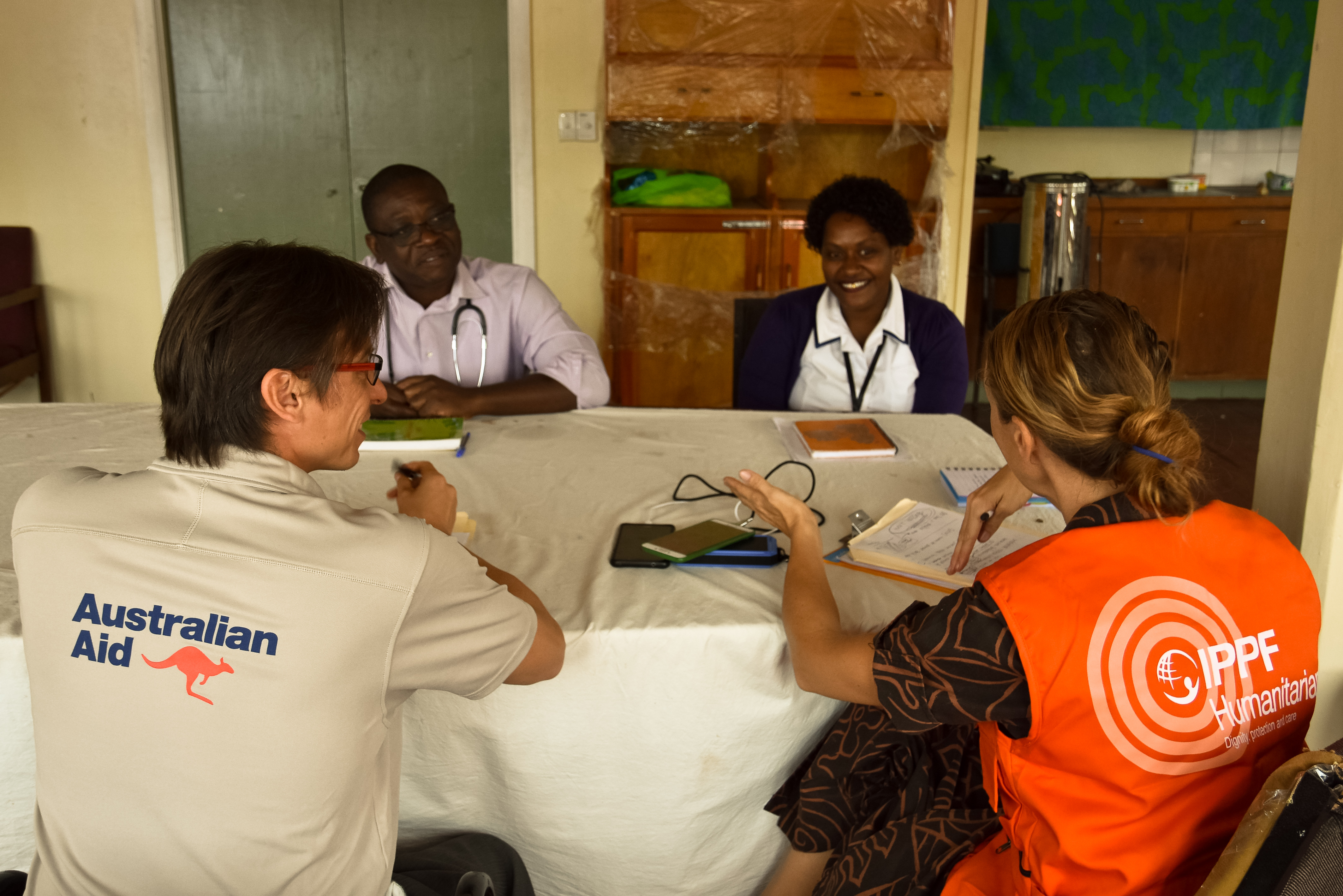
| 26 April 2022
SPRINT: Sexual and reproductive health in crisis and post-crisis situations
The SPRINT Initiative provides one of the most important aspects of humanitarian assistance that is often forgotten when disaster and conflicts strike: access to essential life-saving sexual and reproductive health services. We build capacity of humanitarian workers to deliver essential life-saving sexual and reproductive health services in crisis and post-crisis situations through the delivery of the Minimum Initial Service Package (MISP) for reproductive health in emergencies. Through funding from the Australian Government's Department of Foreign Affairs and Trade (DFAT), our SPRINT Initiative has brought sexual and reproductive health to the humanitarian agenda, increased capacity and responded to a number of humanitarian emergencies. Australia has funded the SPRINT initiative since 2007. Since then, the SPRINT initiative has responded to 105 humanitarian crises and worked with partners in 99 countries. SPRINT has reached over 1,138,175 people, delivering 2,133,141 crucial SRH services, and continues to respond to ongoing emergencies. In each priority country, we work with an IPPF Member Association to coordinate and implement life-saving sexual and reproductive activities. Through these partnerships, SPRINT helps strengthen the enabling environment, improve national capacity and provide lifesaving services during times of crisis. You can read more about IPPF Humanitarian’s Programme here. Australia's location in the Indo-Pacific provides DFAT with a unique perspective on humanitarian action. Australia is committed to helping partner governments manage crisis response themselves. This is done through building the capacity of the national government and civil society to be able to respond to disaster. DFAT also works with experienced international partners to prepare for and respond to disasters, including other donors, United Nations agencies, the International Red Cross and Red Crescent Movement and non-government organisations.

| 11 July 2018
Social Enterprise Acceleration Programme
IPPF is committed to supporting Member Associations to develop social enterprise activities for the purpose of generating income, diversifying funding sources and, ultimately, achieving organizational and financial sustainability. IPPF understands social enterprise as using entrepreneurial methods to generate a surplus income, which is used to finance activities that enable the organization to fulfil its social mission. Member Associations have been engaging in social enterprise for decades. Activities include sale of services, commodities, training and others. In 2017, a survey to map social enterprise among the Member Associations showed that, across IPPF, social enterprise activities contribute up to 24% of the total income in 54 Member Associations, between 25% - 49% in 11 Member Associations, 50% - 74% in 14 Member Associations, between 75% - 99% in 13 Member Associations and 100% in one Member Association. Eight Member Associations reported income of US$ 1 million and above from the sale of specialized health and clinical services whereas five Member Associations raised more than US$ 1 million from commodity sales. Read more in our report: in English; Spanish; Arabic or French. In 2015, IPPF established the Social Enterprise Acceleration Programme (SEAP) aimed at strengthening the capacity of Member Associations to apply entrepreneurial best practices in the health sector while delivering social value and improving lives. SEAP has supported the establishment and growth of social enterprises of Member Associations with the following objectives: Accelerate the development of Member Associations towards achieving financial sustainability and maximizing social impact. Provide Member Associations with high quality technical advice to support the effective development and delivery of sustainable sexual and reproductive health interventions through social enterprise. Share key insights and best practices within the Federation and provide access to external networks of support and market opportunities. The coordination of SEAP is currently carried out by the Social Enterprise Hub managed by the Family Planning Association of Sri Lanka. The Social Enterprise Hub is responsible for SEAP’s grant management, enhancing awareness on social enterprising, project monitoring, capacity building, documentation of learnings and provision of technical assistance and training. Watch our social enterprise video, get familiar with our social enterprise capability statement, read our 2018/2019 MA project stories and download our country-specific resources on providing effective technical guidance. You can also get in touch by email if you have any queries or would like to know more information: [email protected]






